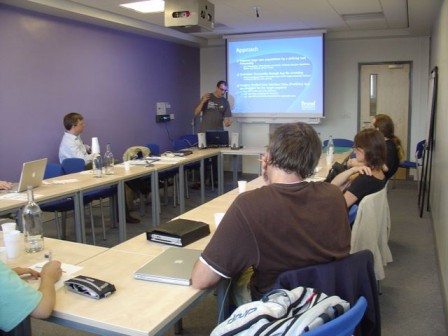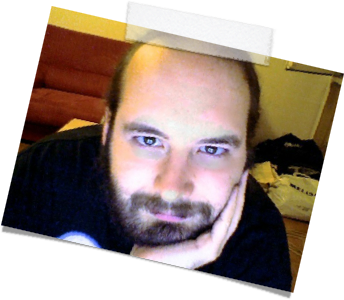Je viens de participer au 2006 HCI Workshop on Computer Assisted Recording, Pre-Processing, and Analysis of User Interaction Data, in co-operation with ACM. Voici ce que j'en retiens à chaud.
Informations
- date : mardi 12 septembre 2006
- appel à participation
- site web
- organisateur : Willem-Paul Brinkman
- lieu: Queen Mary, University of London
Theme
Although computer-assisted recording, pre-processing and analysis of user interaction behaviour has received continuing research attention over the years, its full potential as a data source to inform the design process seems still unrealised. With technologies such as broadband internet and distributed applications, it is possible to continuously and unobtrusively collect interaction data. This data can relate to keypresses, mouse movements, eye gaze, as well as high-level events such as completing a task. This workshop will explore a number of open questions in this area, including: What is the best way to record and collect interaction data? What kind of computer tools, i.e. algorithms, can we use to filter and separate relevant data from noise? Which types of analysis and measures give us design-relevant insight into the interaction, the users, their interaction problems, their needs, personality, and experience? Traditionally, psychologists, usability experts, ergonomists, etc. have been among the main consumers and users of this type of data and supporting tools. However, making the data and tools easy accessible to designers and software engineers might even more directly impact the quality of the application. Therefore, we shall also explore the implications of this wider applicability of usage data.
Objective
The main objective of the workshop is to establish a community of researchers with an interest in this area, allowing a lively exchange of ideas and a joint exploration of outstanding problems and potential solutions. Please note that web usage mining in relation to product sales strategies is not within the scope of this workshop.
Ce que nous présentions
Le travail que nous présentions, dans le cadre du projet de recherche européen AtGentive, portait sur la conceptualisation et la gestion de l’activité : comment identifier les différents types d’activités réalisées sur ordinateur par utilisateur, pour les regrouper automatiquement en thématiques et faciliter le basculement de contexte de travail via des outils intelligents.
Nous avons présenté nos deux prototypes actuellement à l’essai. Le premier s’appuyant sur l’utilisation simple d’un virtual desktop manager, et le second, plus poussé, mettait en œuvre nos outils d’analyse d’activité pour proposer des éléments de métacontrôle à l’utilisateur.
Voir aussi les documents en annexe de ce billet.
Opinion
Les sujets abordés dans cet ateliers étaient très variés, allant de la réalité augmentée pour la géolocalisation aux EIAH, en passant par la définition automatisée de profiles musicaux.
Cet atelier, bien qu'enrichissant pour connaître ce qui se fait ailleurs, était trop vaste pour pleinement travailler sur les problématiques qui nous intéressaient. Cependant, tous les retours que nous avons eu sur nos travaux étaient positifs et résonnaient particulièrement avec ce qui se fait en ce moment dans les EIAH.





Commentaires récents